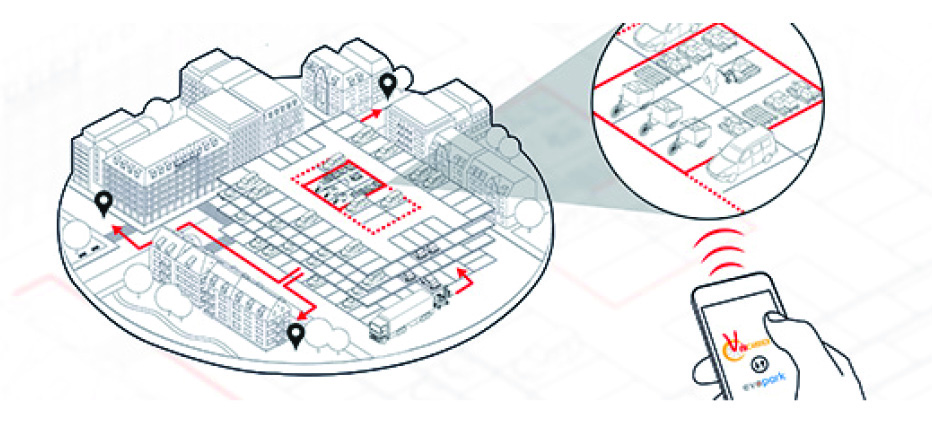
What is the key to effectively managing urban parking garages? In a collaborative project dubbed Park_up, Fraunhofer IAO is working with partners to develop long-term solutions.
As part of the project, the partners are exploring digital utilization concepts aimed at improving urban traffic and logistics flows as a way to relieve strain on people and the environment.
Cities face an ongoing challenge in their endeavors to provide adequate parking and to use parking spaces effectively. Park_up aims to develop new, digital utilization concepts for parking garages for times when the spaces are in low demand. The idea is to raise the appeal of free spaces in parking garages to motorists and logistics organizations alike, and use the empty space more productively. In addition to supporting logistics providers, the objective is to design a mobility management concept that can incorporate several parking garages.
New mobility solutions for increased comfort
“A paradigm shift in the way that urban parking is both provided and used is on the horizon. After all, in the future the value of a parking space will be determined increasingly by user behavior and by the external factors at play at any given time – for instance traffic volume. Activities in the Park_up project involve developing and implementing pilots for alternative utilization concepts,” explains Fraunhofer IAO project manager Dr. Bernd Bienzeisler. A parking app, for example, provides parking garage operators with a more flexible and customer-friendly solution for determining their prices. It allows them, for instance, to offer empty parking spaces at a reduced rate, with drivers then paying for them using a cashless system on the app.
Furthermore, the idea is for parking garages not to be used exclusively for car parking. Instead, they should be opened up for alternative uses at times when spaces are in low demand, for instance during the night. Free spaces are particularly sought after by logistics organizations, which can use them as flexible hubs providing temporary storage for their goods. This, in turn, enables the logistics companies to deliver the goods to end customers in an environmentally sustainable manner, for example using electric freight bicycles.
Pilot project in Stuttgart
The first step is to set up a pilot project in Stuttgart to test the utilization concepts. In the future, the concept will be rolled out across Germany, allowing other towns to benefit. Fraunhofer IAO is coordinating the scientific aspects of the project, particularly with a view to developing the methodological and conceptual basis for its implementation, for example by performing a systematic analysis of urban requirements.
Working on the project alongside the Fraunhofer Institute for Industrial Engineering IAO are two start-ups: evopark GmbH and veloCARRIER GmbH. Coordinated by TÜV Rheinland and managed by evopark, the project is scheduled to run for 30 months from July 2017 to December 2019. Germany’s Federal Ministry of Transport and Digital Infrastructure (BMVI) has approved 2.02 million euros of funding for the collaborative project.